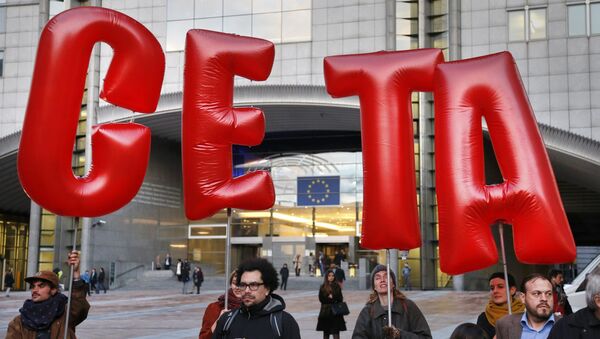"[The] initiative to hold a parliamentary debate was blocked by the People's Party [European People's Party], the socialists and the liberals," a representative of the left-wing European United Left–Nordic Green Left group said.
He recalled that Walloon authorities were not alone in their desire to introduce changes to the CETA. According to him, local authorities across the European Union were somehow dissatisfied with the agreement, in particular, those in Ireland and Slovenia.
On Friday, Belgian regional parliaments are expected to endorse the text with the compromise, which would come along with the CETA deal.
CETA, which was negotiated between 2008 and 2014, is expected to become Canada's biggest bilateral initiative after the 1994 North American Free Trade Agreement (NAFTA), signatories of which are Canada, Mexico, and the United States.
The agreement aims to establish a free trade zone between Canada and the European Union, scrapping more than 98 percent of the existing tariffs between Ottawa and Brussels. Opponents fear it would undermine standards and regulations on environmental protection, health, safety and workers' rights.




